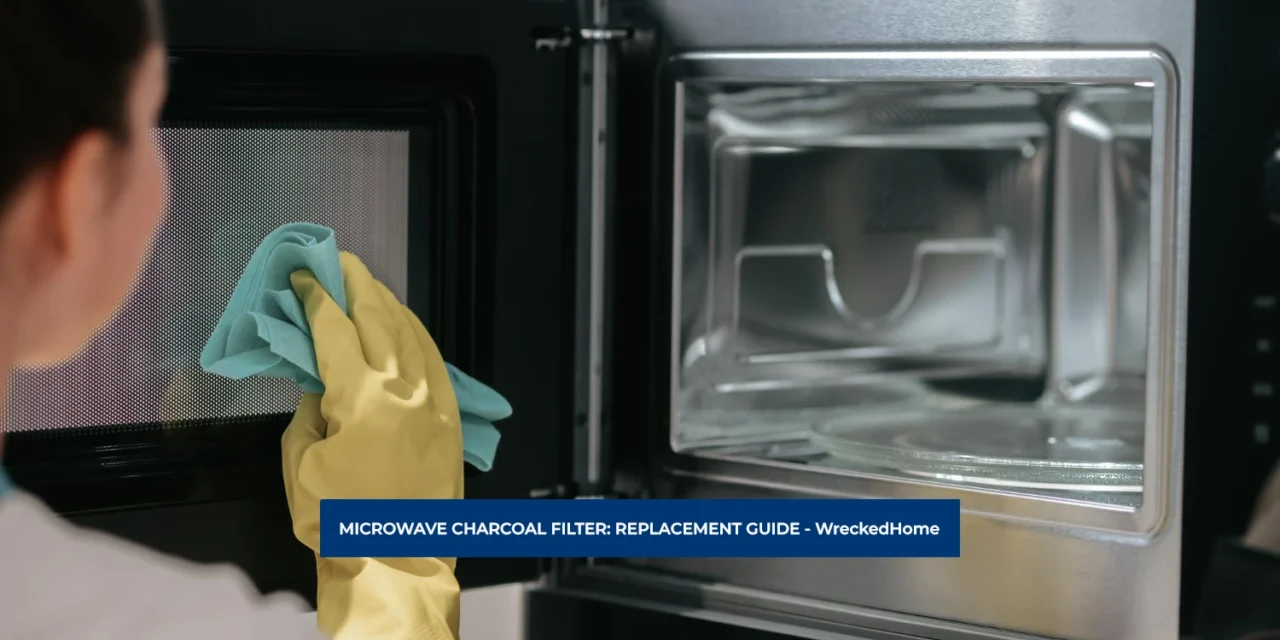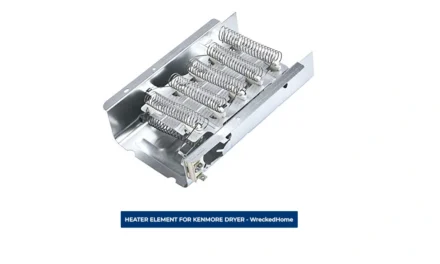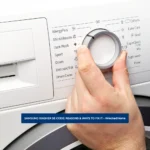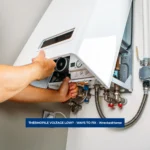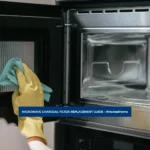In the world of culinary convenience, microwave ovens have become indispensable to ease the preparation of meals. At the heart of this kitchen essential is one basic component—the charcoal filters. Often underestimated, these filters play a pivotal role in ensure the microwave oven is properly functioning.
Microwave charcoal filters act as unsung heroes to eliminate odors and enhance air quality during the cooking process. Beyond merely facilitating a pleasant cooking environment, it keeps your kitchen hygienic. Overlooking their importance can lead to a gradual decline in microwave performance and lower the kitchen efforts.
In this article, we will provide a proactive replacement guide for charcoal filters. Instead of waiting for signs of wear and tear you can boost the performance with preventive measures.
The repercussions of a well-maintained charcoal filter masters the art of timely and efficient replacements, enhancing the longevity and efficiency of your microwave. A clean filter translates to improved air circulation within the microwave. It also ensures that your microwave remains an asset in your kitchen arsenal.
Critical Role of Charcoal Filters in Microwaves:
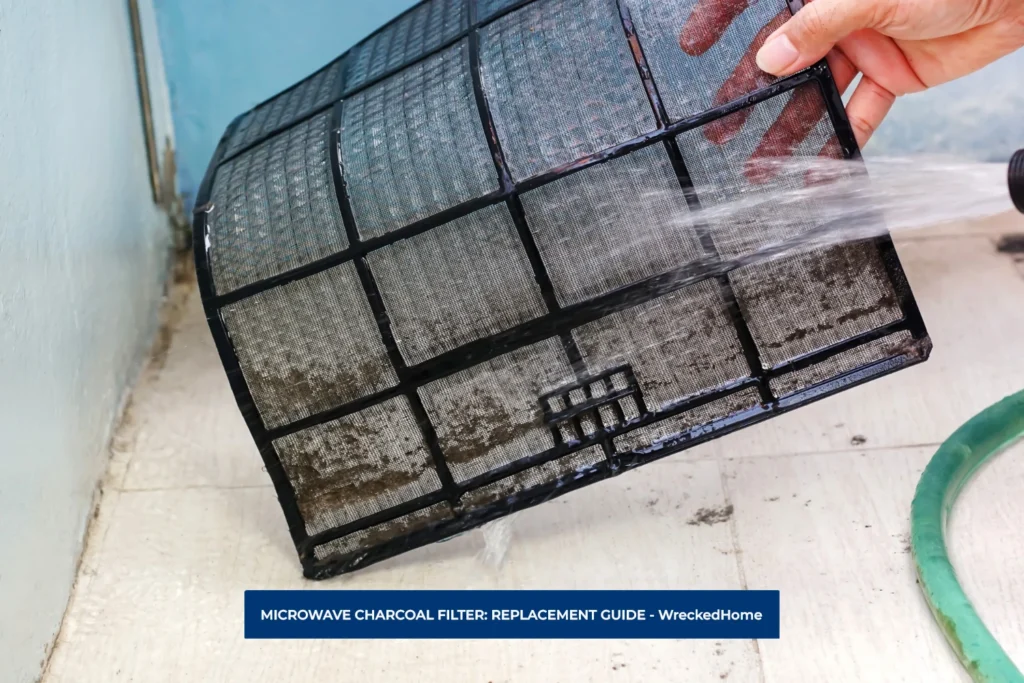
Microwave charcoal filters are not mere accessories but integral components that make the functioning of microwaves more efficient. By understanding their critical role you can maximize the impact of charcoal filters on your kitchen experience.
- Odor Neutralization: Charcoal filters have the ability to absorb and neutralize unpleasant odors that are produced during the cooking process. Whether it’s the lingering aroma of last night’s garlic-infused dish or the scent of reheated leftovers, this can diminish with these filters.
- Air Quality Enhancement: Beyond addressing odors, charcoal filters play a pivotal role in enhancing the overall air quality of your microwave which impacts your kitchen and food. By trapping airborne particles and impurities, it ensures that air circulating during cooking remains clean and free of any harmful elements.
- Grease and Smoke Removal: Cooking, especially at high temperatures, can lead to the production of grease and smoke. Charcoal filters act as effective barriers, to capture and remove these dangerous particles before they can accumulate with food. This not only preserves the cleanliness of the appliance but also prevents from any harm to health.
- Extended Lifespan of the Microwave: Charcoal filters contribute to the longevity of your microwave that prevents from the accumulation of debris and grease. A well-maintained filter ensures that there is no dirt in the internal parts of the oven. It relies on the cleanliness of the fan and motor, to remain free from unnecessary stress and wear.
- Improved Cooking Efficiency: Clean air circulation is crucial for appropriate cooking conditions. Charcoal filters facilitate this by ensuring that the microwave’s ventilation system is working effectively. This, in turn, leads to improved cooking efficiency, and lowers the risk of over and under cooked recipes.
- Health Benefits: Beyond the tangible benefits for your microwave, it also has a heavy impact on your health. By eliminating airborne particles and odors, charcoal filters ensure that your kitchen environment is clean. This is particularly beneficial for people who opt in kitchen but have tendency of respiratory sensitivities or allergies.
- Versatility Across Microwave Models: Charcoal filters exhibit versatility along with the various microwave models. Whether you own a counter top microwave, over-the-range model, or island microwave, the filter is designed to get the best ever result. Therefore always prefer the filter that compatible to model.
- Contribution to Sustainable Practices: The absorbent nature of charcoal filters allow them to capture and contain odorous compounds with the auto cleaning ability. This sustainable quality aligned with eco-friendly practices lowers replacement chances. By minimizing waste and promoting the reuse of filter materials; it is known as a cost effective measure.
In essence, the critical role of microwave charcoal filters extends beyond surface-level odor control. It ensures the availability of clean, efficient, and sustainable microwave environment. Recognizing and appreciating these filter fundamentals is elevating your overall kitchen experience.
How to Replace a Microwave Charcoal Filter

Maintaining the optimal performance of your microwave requires periodic replacement of the charcoal filter. Here’s a step-by-step guide to seamlessly replace your microwave charcoal filter and make your kitchen better function.
- Step 1: Disconnect Your Microwave’s Power: to start the replacement process, turn off the microwave oven and disconnected from the power source.
- Step 2: Dismantle the Vent Panel: Using a Phillips-head Screwdriver, remove the vent panel from it. Gently lift the vent panel away, and reassemble the components of your microwave.
- Step 3: Remove the Old Microwave Charcoal Filter: Locate the existing charcoal filter within the microwave and replace it with the new one. Ensure the new filter is correctly positioned and securely in place.
- Step 4: Reassemble the Vent Panel: Securely position the vent panel back in place over the microwave’s internal components and fix it with the help of screws to tighten. This step completes the replacement process. Now run a test by operating it on a test item.
In just a few simple steps, you’ve successfully replaced your microwave charcoal filter that maintains the efficiency of your appliance. Remember to adhere to the recommended replacement interval of every 6 months for odor control in your microwave.
Key Indicators of a Failing Charcoal Filter:
Microwave charcoal filters, though durable, undergo wear and tear over time. There are some of the indicators that show a signal of a failing charcoal filter:
- Persistent Odors: If your microwave is no longer effectively neutralizing odors that persist even after cleaning could indicate a compromised filter.
- Poor Air Circulation: Reduced air circulation within the microwave leading to increased moisture or uneven cooking.
- Visible Damage: Physical inspection is key to find cracks, tears, or significant discoloration, is a clear indication of wear.
- Grease and Residue Buildup: As the filter’s absorbent capacity diminishes it lead to an increase in grease and residue buildup within the microwave.
- Unusual Noises: Unusual sounds, such as rattling or buzzing, while you are operating the microwave leads to a failing charcoal filter.
- Change in Cooking Times: Filter degradation can impact the usual cooking duration. You will notice that it no longer produces the desired results, and the filter may be a contributing factor.
- Inconsistent Heating Patterns: A failing charcoal filter can result in uneven heating patterns that keeps food under cooked.
Optimal Replacement Selection
When it comes to replacing your microwave charcoal filter, you must ensure some tips for performance and longevity. Here’s what you need to consider to make the optimal replacement selection:
- Identify Your Microwave Model: Different models may have specific requirements for charcoal filters, therefore its necessary to choose model that meet in size, shape, and compatibility.
- Check Compatibility: Ensure that the replacement filter is compatible for effective performance. Charcoal filters come in various shapes and sizes, and a mismatch can lead to potential damage to the appliance.
- Material Consideration: Charcoal filters are commonly made from activated carbon, to guarantee optimal odor removal and air purification.
- OEM vs. Aftermarket Filters: Original Equipment Manufacturer (OEM) filters are designed by the same manufacturer as your microwave to ensure quality and efficiency.
- Size and Shape Matching: Pay close attention to the dimensions and shape of the replacement filter of the microwave’s ventilation system.
- Consider Filter Lifespan: Different filters have varying lifespans to gauge how frequently replacements will be necessary.
- Customer Reviews and Ratings: Research customer reviews and ratings for the replacement filter to consider products with positive reviews and a track record of customer satisfaction.
- Brand Reputation: Prioritize reputable brands to create filters that meet high standards of performance and durability.
- Package Inclusions: Check what is included in the replacement filter package such as tools and material.
- Warranty and Return Policy: Review the warranty and return policy offered by the manufacturer. That is a safe end. A warranty provides assurance of the filter’s quality, and a reasonable return policy to get ease in return if product is not compatible.
By paying attention on these tips you can maximize the performance of your microwave oven. It also lowers the associated risk factors and ensure best choice.
Conclusion (Microwave Charcoal Filter)
In concluding the replacement of your microwave charcoal filter, this is something that is often overlooked. Yet, it plays a pivotal role in neutralizing odors and enhancing air quality during your culinary endeavors. By following the straightforward steps outlined, you’ve not only extended the lifespan of your microwave but also contributed to a healthier cooking environment.
Regular replacement, typically recommended every 6 months, ensures that your microwave continues to operate at its peak, maintaining optimal air circulation and odor removal capabilities. As you reassemble the vent panel and power up your freshly equipped microwave; you not only safeguards your microwave but also enhances your overall kitchen experience. With these guided steps you can ensure optimal performance and a prolonged lifespan for your kitchen essential.
If you still feel that you cannot replace your filter after reading this guide, please consult a professional. Find A Pro Near You Here!
FAQs (Microwave Charcoal Filter)
What is a charcoal filter on a microwave?
A charcoal filter on a microwave is a key component that is essential to absorb odors from the air generated during cooking. Typically located on the underside of over-the-range microwaves, these filters consist of rectangular metal pieces with a flat sheet of charcoal beneath a honeycomb grate.
Why replace microwave charcoal filter?
The charcoal filter in a microwave should be replaced every 6 months for effective working and ensuring a fresh kitchen environment. Regular replacement is essential for maintaining optimal filter performance to improve the air quality.
Can you clean a microwave charcoal filter?
No you cannot clean the microwave charcoal filter that is positioned behind the vent grille at the top front of the oven. Instead, it should be replaced approximately every 6 months or whenever you note the filter status indicator. Regular replacement ensures the effective removal of odors and maintains the overall efficiency of the microwave.

